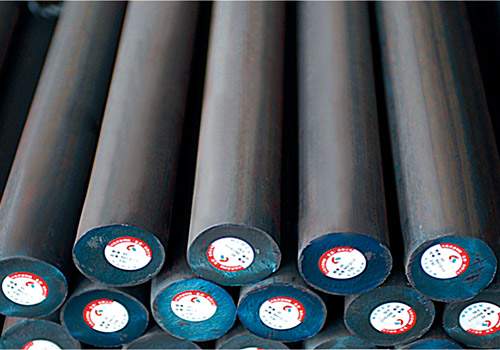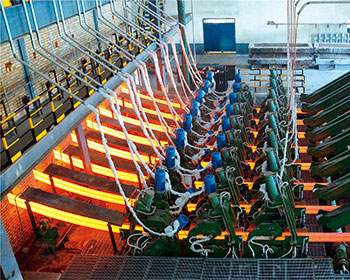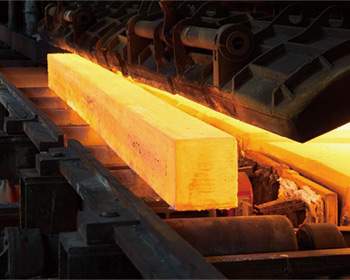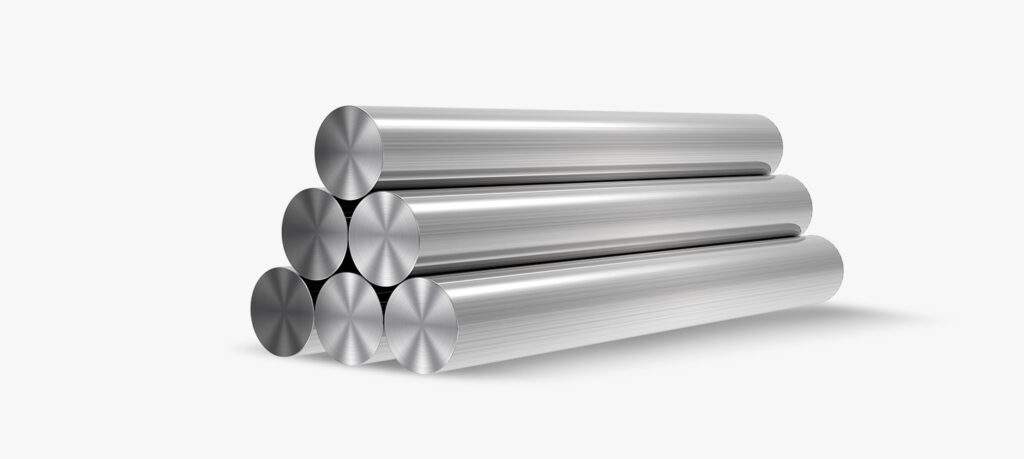
What Is the 1020 Steel Density? Key Facts
Table of Contents
Introduction

When choosing materials for various engineering, construction, and manufacturing applications, understanding the properties of the material is essential. One critical property that engineers, designers, and manufacturers often consider is the density of the material. In this article, we will delve into the 1020 steel density, its implications, and why it matters for different applications. Whether you are working on a project requiring structural steel or need to know how steel interacts with other materials, knowing the density of 1020 steel is crucial for ensuring optimal performance and efficiency.
Henan Jiyuan Iron and Steel (Group) Co., Ltd. was founded in 1958. It has rich experience in production and research and development. It provides you with one-stop steel services and welcomes consultations from customers around the world.
What Is 1020 Steel?
Before diving into the specifics of 1020 steel density, it is important to understand what 1020 steel is. 1020 steel is a low-carbon steel that contains a carbon content of around 0.20%. It is known for its balance between strength, ductility, and machinability, making it ideal for various applications in automotive, construction, and industrial settings. This steel grade is commonly used in applications where high tensile strength and resistance to wear are necessary, but where the extreme hardness and brittleness of higher-carbon steels are not required.
1020 Steel Density: Key Characteristics


Standard Density of 1020 Steel
The density of 1020 steel is a crucial factor when it comes to determining the weight of the steel and how it will behave under different conditions. The standard 1020 steel density is approximately 7.85 grams per cubic centimeter (g/cm³) or 7850 kilograms per cubic meter (kg/m³). This is typical for low-carbon steels and makes 1020 steel an ideal choice for applications that require a balance of strength and weight.
Why Density Matters in Steel Applications
The density of a material is important in engineering because it affects the weight, strength, and durability of the material when used in structures or machinery. 1020 steel’s density plays a key role in determining the overall weight of a component, which can impact the cost of transportation, installation, and the structural integrity of the end product. Additionally, the density influences how much the material will expand or contract with temperature changes, which is important in some precision applications.
Influence of Density on Structural Integrity
In construction and industrial applications, steel is often used to provide structural integrity to buildings, bridges, and other large projects. The 1020 steel density ensures that it can provide the required load-bearing strength without becoming overly heavy. This is particularly useful in structural applications where the weight of the steel must be balanced with other materials and design considerations.
The Impact of Density on Machining and Fabrication
The machinability of 1020 steel is also influenced by its density. Because of its relatively low carbon content and standard density, 1020 steel is easy to machine, weld, and form into various shapes. This makes it a popular choice for manufacturers who need to produce custom components that require precise machining without compromising strength.
How Density Affects Corrosion Resistance
The density of 1020 steel also impacts its resistance to corrosion. While 1020 steel itself is not as resistant to corrosion as stainless steel, its density helps in determining how well it holds up to environmental conditions such as moisture, salts, and chemicals. Typically, 1020 steel is coated or treated to enhance its corrosion resistance in environments where it may be exposed to water or harsh chemicals.
Table: Comparison of Steel Grades and Their Densities
| Steel Grade | Density (g/cm³) | Carbon Content (%) | Applications |
|---|---|---|---|
| 1020 Steel | 7.85 | 0.20 | Automotive, structural applications, manufacturing |
| 304 Stainless Steel | 7.93 | 0.08 | Food processing, medical equipment |
| A36 Steel | 7.85 | 0.26 | Construction, structural beams, heavy machinery |
| 1018 Steel | 7.87 | 0.18 | General machining, parts requiring good weldability |
| 4140 Steel | 7.85 | 0.40 | Industrial machinery, gears, shafts |
Applications of 1020 Steel Based on Density

1020 Steel in Automotive Manufacturing
The relatively low density of 1020 steel makes it an excellent choice for the automotive industry, where parts need to be strong yet lightweight to improve vehicle efficiency. Components such as chassis, frames, and axles benefit from the balanced density and strength of 1020 steel.
Use of 1020 Steel in Construction
For the construction industry, 1020 steel is often used in structural applications where weight and load-bearing capacity are critical. The density of 1020 steel ensures that it can support heavy loads without being overly bulky or difficult to handle.
Manufacturing Machinery
The ability to machine 1020 steel with relative ease due to its moderate density makes it suitable for the production of a wide variety of parts in the machinery sector. It is commonly used for shafts, gears, and pins where strength and durability are required but extreme hardness is not necessary.
General Fabrication and Parts
For general fabrication, 1020 steel is often chosen due to its density and the fact that it provides a good balance of strength and flexibility. It can be welded and formed into various shapes for different applications.
Conclusion
Understanding 1020 steel density is crucial for making informed decisions in industries such as construction, automotive, and manufacturing. With a density of 7.85 g/cm³, 1020 steel offers a good balance of weight, strength, and machinability, making it an excellent material for various applications. Whether you’re designing a building, producing machinery parts, or manufacturing components for the automotive industry, understanding the density of 1020 steel ensures that you are selecting the right material for the job.
FAQ
What is the density of 1020 steel?
The density of 1020 steel is approximately 7.85 g/cm³ or 7850 kg/m³.
Why is 1020 steel commonly used in the automotive industry?
1020 steel is used in automotive manufacturing because its density offers a good balance between strength and weight, which is crucial for improving vehicle efficiency.
How does the density of 1020 steel affect its machining?
Due to its moderate density, 1020 steel is easy to machine and can be used for a variety of components that require precision.
What are some applications of 1020 steel in construction?
In construction, 1020 steel is used in structural applications where load-bearing capacity and manageable weight are important.
How does 1020 steel compare to other steel grades in terms of density?
The density of 1020 steel is similar to other low-carbon steels, such as A36 steel, making it comparable in terms of weight and strength for various applications.
Does the density of 1020 steel affect its resistance to corrosion?
While 1020 steel is not highly resistant to corrosion, its density and the material’s properties can be enhanced with coatings and treatments to improve its performance in exposed environments.
What are the typical forms of 1020 steel available in the market?
1020 steel is commonly available in forms such as bars, rods, sheets, and coils, which are used in a variety of manufacturing and fabrication applications.
Can 1020 steel be welded?
Yes, 1020 steel is known for its excellent weldability, which makes it a popular choice for welded parts and components in various industries.
Is 1020 steel suitable for high-temperature applications?
1020 steel is not typically used in high-temperature applications because of its moderate carbon content. It is best suited for standard structural uses.
How does the carbon content in 1020 steel affect its properties?
The low carbon content (0.20%) of 1020 steel contributes to its ductility, weldability, and ease of machining, but it also limits its hardness and strength compared to higher-carbon steels.






